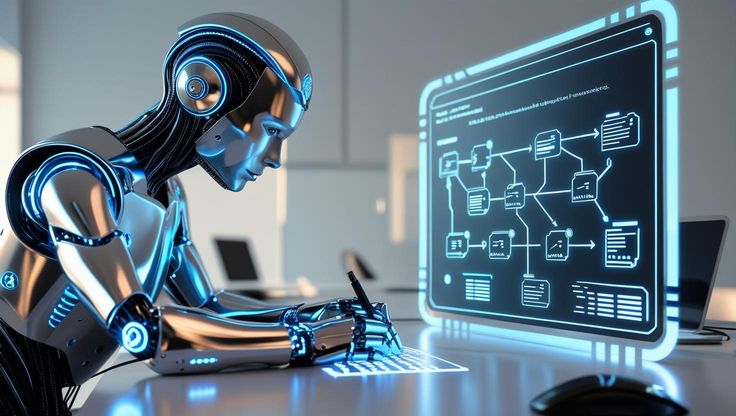
Stanford Study Warns AI Is Reshaping the Workforce, Hitting New Graduates Hardest
Aug 28, 2025 |
👀 75 views |
💬 0 comments
A new, first-of-its-kind study from Stanford University has provided the clearest evidence yet of a trend many have feared: artificial intelligence is beginning to have a significant and disproportionate impact on entry-level jobs, fundamentally reshaping the career ladder for young people entering the workforce.
The landmark report, released yesterday by Stanford's Institute for Human-Centered Artificial Intelligence (HAI), is one of the most comprehensive analyses to date on the real-world effects of AI on the U.S. labour market. Researchers analyzed millions of job postings and hiring data from the past two years, concluding that the wave of generative AI has created a "structural shift" that is hollowing out the bottom rungs of the professional ladder.
"We are seeing a clear pattern where the tasks traditionally assigned to new graduates—research, data collection, summarizing documents, writing basic code—are precisely the tasks that are being automated by AI at an accelerating rate," said Dr. Ben Jensen, the lead author of the study. "This is creating a bottleneck for talent. Companies are still hiring for senior roles, but the entry points are disappearing."
According to the Stanford research, the key findings include:
Decline in Entry-Level Postings: Job listings for roles with titles like "junior analyst," "entry-level marketing associate," or "paralegal assistant" have seen a marked decline since the widespread adoption of generative AI tools.
Skill Inflation: The tasks and responsibilities once reserved for employees with 3-5 years of experience are now frequently appearing in job descriptions for entry-level positions. New graduates are expected to come in with a higher level of strategic thinking and AI management skills, rather than learning on the job.
Disproportionate Impact: The study found that while AI is affecting all levels of the workforce, the impact is "acutely concentrated" at the entry-level. This threatens to create a "lost generation" of workers who may struggle to gain the foundational experience needed to advance in their careers.
The report has sent a shockwave through academic and economic circles, providing hard data to back up anecdotal evidence. For years, the prevailing wisdom was that AI would primarily automate repetitive, blue-collar tasks. The Stanford study shows that the first major wave of displacement is actually hitting white-collar, knowledge-based professions.
Here in Lagos, where a massive and ambitious youth population is graduating into an already competitive job market, the findings from the U.S. serve as a critical early warning. As Nigerian companies increasingly adopt the same AI technologies, the pressure on new graduates to differentiate themselves will become even more intense.
"This isn't a future problem; it's a present-day reality," Dr. Jensen warned in the report's conclusion. "Educational institutions and corporations need to fundamentally rethink how we train and onboard new talent. The old model of learning by doing simple tasks is being automated away. The new entry-level skill is not just doing the work, but knowing how to effectively manage an AI to do the work for you."
The study concludes not with a prediction of mass unemployment, but with a call for urgent adaptation, stressing that the nature of work itself is changing, and the first to feel the tectonic shift are those just starting out.
🧠 Related Posts
💬 Leave a Comment
